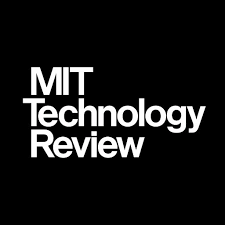
Extractive summaries and key takeaways from the articles curated from TOP TEN BUSINESS MAGAZINES to promote informed business decision-making | Week 300 | June 9-15, 2023.

Longevity enthusiasts want to create their own independent state. They’re eyeing Rhode Island.
By Jessica Hamzelou | MIT Technology Review | May 31, 2023
Listen to the Extractive Summary of the Article
Humans have been searching for the fountain of youth for thousands of years. But progress has been slow, to say the least. Though plenty of companies are working on ways to slow or reverse the process, it’s incredibly difficult and expensive to run a study to find out whether a treatment has helped people live longer. And health agencies like the World Health Organization don’t even consider aging to be a disease in the first place.
Now a community of people is working on an alternative setup, including perhaps even establishing an independent state. Aging is “morally bad,” they argue, and it’s a problem that needs to be solved. They see existing regulations as roadblocks to progress and call for a different approach. Less red tape allows for more innovation, they say. People should be encouraged to self-experiment with unproven treatments if they wish. And companies shouldn’t be held back by national laws that limit how they develop and test drugs.
Around 780 such people gathered at the “pop-up city” in Montenegro to work out how they might create such a state—a place where like-minded innovators can work together in an all-new jurisdiction that gives them free rein to self-experiment with unproven drugs. Welcome to Zuzalu. The gathering, held at a luxury resort in Tivat, Montenegro, runs until the end of May. Each week has a different theme, ranging from synthetic biology to artificial intelligence, although the overarching focus is on longevity, cryptocurrencies, and the idea of creating novel jurisdictions. There are celebrities, politicians, and billionaires who were rumored to have dropped in.
Zuzalu’s longevity biotech conference—a three-day event brought together people from universities, startups, and longevity clinics around the world. Startups working on ways to keep people healthier for longer, and ultimately to extend our life spans shared their work in progress. But one of the core goals of attendees is to develop what they call a network state – a state that prioritizes doing something about aging.” The state could encourage biotech companies to set up bases there by offering tax perks, supporting biohacking, and loosening regulations on clinical trials. It should be up to individuals to decide how much risk they are willing to accept—doctors shouldn’t have the final say on whether a person is able to access an experimental treatment. Not all attendees adhered to this idea.
3 key takeaways from the article
- Humans have been searching for the fountain of youth for thousands of years. But progress has been slow, to say the least.
- Though plenty of companies are working on ways to slow or reverse the process, it’s incredibly difficult and expensive to run a study to find out whether a treatment has helped people live longer. And health agencies like the World Health Organization don’t even consider aging to be a disease in the first place.
- Now a community of people is working on an alternative setup, including perhaps even establishing an independent state. A state where people should be encouraged to self-experiment with unproven treatments if they wish. And companies shouldn’t be held back by national laws that limit how they develop and test drugs.
(Copyright)
Topics: Science, Technology, Longevity, Regulations
